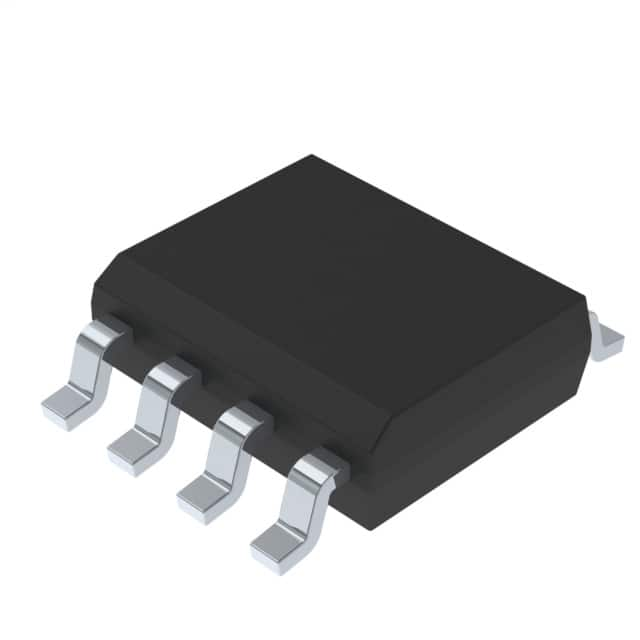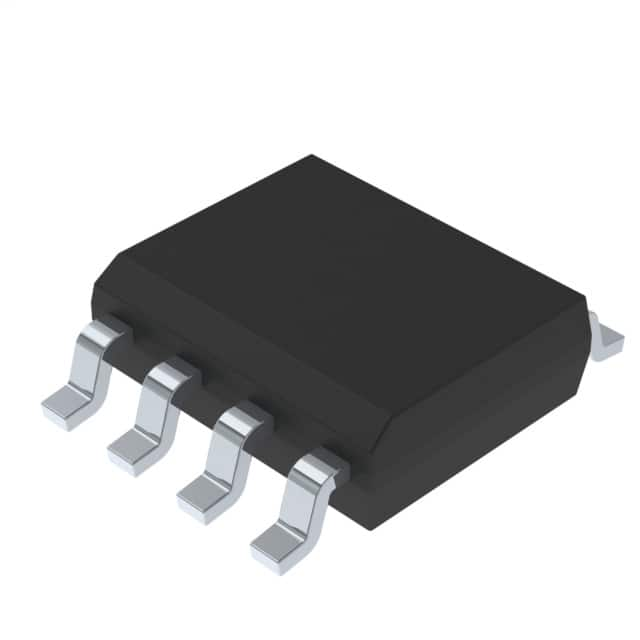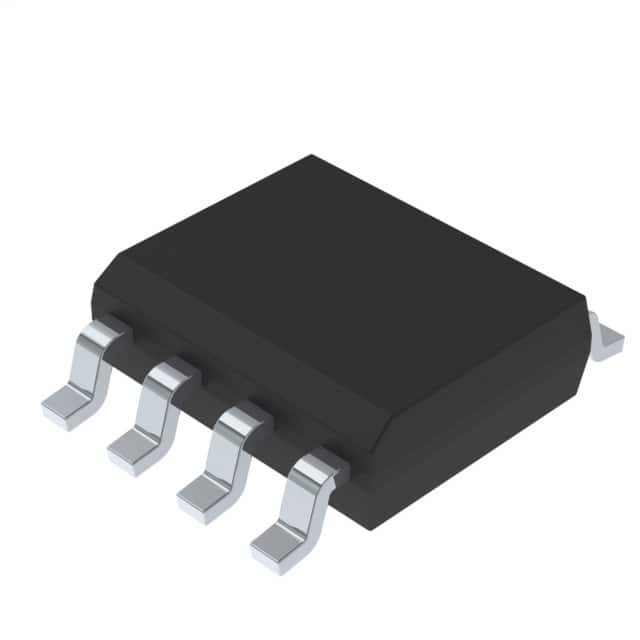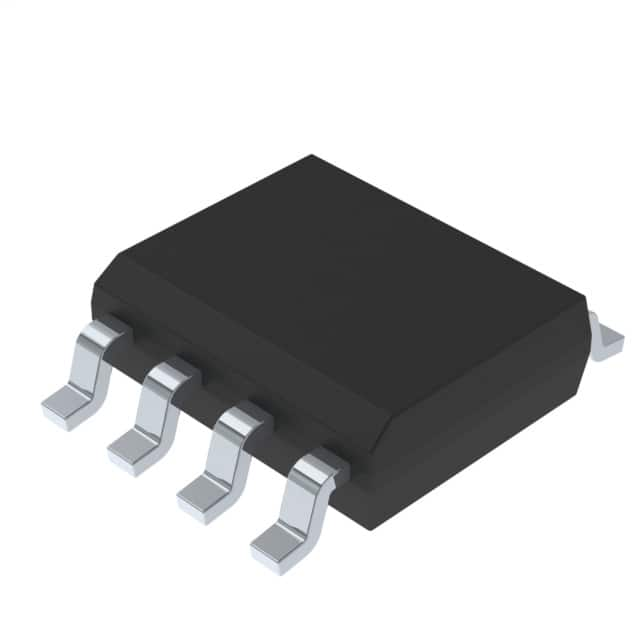STMicroelectronics LM358D Dual Operational Amplifier
LM358D Introduction
LM358D is a powerful, low-power, cost-effective dual op-amp suitable for a variety of analog circuit applications, especially in low-voltage, low-power, space-saving designs. It is very suitable for common analog signal processing applications such as signal amplification, voltage following, comparators, filters, etc. If you need multiple op-amps in your design and require space saving, LM358D is a very ideal choice.
LM358D Application Field
LM358D is widely used in many analog and low-power systems. Common applications include:
Signal amplification: Ability to amplify small signals from sensors or other sources.
Voltage follower (buffer): In this configuration, LM358D can provide high input impedance and low output impedance, and is usually used for impedance matching.
Comparator: With appropriate feedback and reference voltage, the LM358D can be used as a comparator for zero-crossing detection, voltage threshold detection, and pulse width modulation (PWM) circuits.
Active filter: Commonly used for low-pass, high-pass, and band-pass filters.
Summing amplifier: It can perform weighted summation of multiple input signals.
Differential amplifier: Suitable for amplifying the difference between two input signals.
LM358D Datasheet
LM358D Similar or Alternative
Product comparison
LM358D vs LM358DT vs LM2904DT vs LM258DT Comparison
| Parameter | LM358D | LM358DT | LM2904DT | LM258DT |
|---|---|---|---|---|
| Image |  |  |  |  |
| Manufacturer | STMicroelectronics | STMicroelectronics | STMicroelectronics | STMicroelectronics |
| Type | Dual Operational Amplifier | Dual Operational Amplifier | Dual Operational Amplifier | Dual Operational Amplifier |
| Package Type | SO-8 (Surface Mount) | SO-8 (Surface Mount) | SO-8 (Surface Mount) | SO-8 (Surface Mount) |
| Gain Bandwidth Product (GBP) | 1 MHz | 1 MHz | 1 MHz | 1 MHz |
| Slew Rate | 0.6 V/µs | 0.6V/µs | 0.6 V/µs | 0.6 V/µs |
| Input Offset Voltage | 3 mV | 3 mV | 3 mV | 3 mV |
| Input Bias Current | 100 nA | 100 nA | 100 nA | 100 nA |
| Operating Voltage | 3V to 32V (Single Supply) or ±1.5V to ±16V (Dual Supply) | 3V to 32V (Single Supply) or ±1.5V to ±16V (Dual Supply) | 3V to 32V (Single Supply) or ±1.5V to ±16V (Dual Supply) | 3V to 32V (Single Supply) or ±1.5V to ±16V (Dual Supply) |
| Operating Temperature Range | -40°C to +85°C | -40°C to +85°C | -40°C to +125°C | -40°C to +85°C |
| Output Voltage Swing | Close to ground (single supply) or negative rail (dual supply) | Close to ground (single supply) or negative rail (dual supply) | Close to ground (single supply) or negative rail (dual supply) | Close to ground (single supply) or negative rail (dual supply) |
| Power Consumption | 0.5 mA per channel | 0.5 mA per channel | 0.5 mA per channel | 0.5 mA per channel |
| Features | Suitable for low power, low voltage applications | Similar to LM358D, but with additional specifications (such as temperature range) | Suitable for high-temperature applications (up to +125°C) | Suitable for low power, low voltage applications similar to LM358 |
How to use op amp lm358
LM358 IC (Dual comparator) Basic Electronics
Operational amplifier basic properties explained using LM358 dual op amp
LM358D FAQs
1. What type of operational amplifier is LM358D?
LM358D is a dual operational amplifier (Dual Op-Amp), which contains two independent operational amplifiers in one package. It is suitable for low-power, low-voltage analog signal processing applications.
2. What is the difference between LM358D and LM358?
The difference between LM358D and LM358 is the package type. The LM358D is an SO-8 surface mount package suitable for surface mount technology (SMT), while the LM358 is usually a DIP package. The two are identical in terms of functionality and performance.
3. Can the LM358D be used with a single or dual power supply?
The LM358D can be used with a single power supply or a dual power supply configuration. It supports a single power supply operating range of 3V to 32V, or a dual power supply operating range of ±1.5V to ±16V, which can adapt to a variety of power supply requirements.
4. What is the operating temperature range of the LM358D?
The LM358D has an operating temperature range of -40°C to +85°C, which is suitable for most industrial and consumer applications. If you need an op amp for high temperature environments, you can choose the LM2904D (which has a wider operating temperature range of up to +125°C).
5. Does the LM358D support rail-to-rail input and output?
LM358D supports rail-to-rail input, that is, its input signal can be close to the power rail, but the output does not fully support rail-to-rail output. The output voltage will have a certain voltage drop and usually cannot fully reach the power rail. Its output swing can be close to the ground potential (single power supply) or the negative power supply potential (dual power supply).
6. What is the gain-bandwidth product of LM358D?
The gain-bandwidth product (GBP) of LM358D is 1 MHz. This means that when the gain is 1, it can effectively amplify signals with a frequency of no more than 1 MHz.
7. What is the rise rate of LM358D?
The rise rate (Slew Rate) of LM358D is 0.3 V/µs, which means that it responds slowly to signal changes and is suitable for low-frequency applications. If high-speed response is required, you may need to choose a faster operational amplifier.
8. What are the input bias current and input bias voltage of LM358D?
The LM358D has an input bias current of 100 nA and an input bias voltage of 3 mV. This makes it suitable for applications with general accuracy requirements, but if extremely high accuracy is required, you may need to choose an op amp with lower bias current.
9. What is the power consumption of the LM358D?
Each op amp has a typical power consumption of 0.5 mA, which makes the LM358D very suitable for low-power designs, such as battery-powered systems.
10. What applications can the LM358D be used for?
The LM358D is often used in analog circuits such as signal amplification, voltage followers, comparators, active filters, differential amplifiers, and summing amplifiers. It is widely used in sensor signal processing, audio equipment, transmission lines, embedded systems, low-power designs, and other fields.
11. What is the output voltage range of the LM358D?
In a single-power configuration, the output voltage of the LM358D can usually be close to the ground potential (that is, close to 0V), but it cannot reach the ground potential completely. In a dual-power configuration, the output voltage can be close to the negative power rail.
12. How to connect the LM358D as a comparator?
To use the LM358D as a comparator, connect one op amp input to a reference voltage and the other input to the signal to be compared. Threshold detection and signal comparison functions can be implemented by setting appropriate feedback and reference voltages. In this configuration, the LM358D produces a high or low digital output.
13. Is the LM358D suitable for high-speed applications?
The LM358D has a rise rate of 0.3 V/µs, which makes it suitable for low-frequency and medium-frequency applications. If you need to handle high-speed signals or higher bandwidth applications, it is recommended to use an op amp with a higher gain-bandwidth product and a faster rise rate.
14. Is the LM358D suitable for precision measurement applications?
The LM358D has low input bias current and bias voltage (100 nA and 3 mV, respectively), so it is suitable for general precision measurement applications. However, if higher precision (such as instrument-grade precision) is required, you can choose an op amp with lower bias current and higher precision.
15. What is the difference between the LM358D and other LM358 models?
The LM358D and LM358 have the same functions, and the main difference is the package type. The LM358D is an SO-8 surface mount package, while the LM358 is mostly a DIP plug-in package. Choosing a package type usually depends on whether you need surface mount technology (SMT) or a more traditional plug-in package.
16. How to choose the LM358D or another type of op amp?
If the application requires low power, low voltage, and does not require high-speed response, the LM358D is a very good choice. For high-temperature applications (such as automotive electronics), you can choose the LM2904D (operating temperature up to +125°C). If you need higher accuracy or faster response, you can consider other types of op amps.
STMicroelectronics
Запасы : 954
